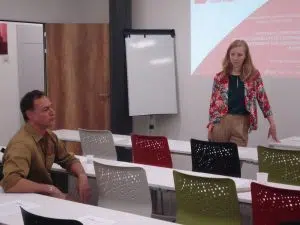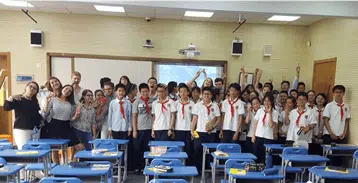
Since this was the first research seminar in Bordeaux, we started with a little introduction on the ESSCA Research Lab and the different research groups that compose it, closing with an explanation of the structure and functions of the EU*Asia Institute.
The two presentations of the day addressed the topic of Corporate Social Responsibility in different aspects, put into the wider context of European Sustainable Development.
The seminar started with Jérôme Ballet, professor at the University of Bordeaux, who spoke about ‘Corporate Environmental Responsibility in Madagascar’s Mining Industry’ – a case study initially authored together with Kevin Lompo and Mahefasoa Randrianalijaona. His presentation covered the environmental impact of a mining project in Madagascar. Compensation was paid by the company in an exemplary manner and to the satisfaction of all stakeholders. Surprisingly, the behaviour of the local population changed, however, negatively. They reverted back to burning the forest around their villages for agricultural usage, after almost 50 years of preservation. The conclusion was that more attention should have been paid to behavioural changes resulting from the environmental impact of the mining company. In other words, the social aspect of CSR was underestimated and the material aspect was wrongly considered to be the most important, if not the only, factor to be taken into consideration.
The second presentation was given by Marine Coupaud from ESSCA Bordeaux. She focused on the correlation between ‘Corporate restructuring and health of workers in Europe’, more precisely on the emotional stress resulting from restructuring in a business. In a very detailed analysis, another social aspect of business behaviour was highlighted. Essentially, the question was whether employees are just another factor in the productivity of a business. Of particular interest was the attempt to value the emotional investment of employees in a company, which turns out to be, inevitably, a two-edged sword. On the one hand, emotional investment attributes value to activities that are considered non-productive. This looks positive at first sight, but on the other hand, this kind of reflection reduces the human being to the same logic of productivity and profit-generating as any machine, paving the way to what Marx would call alienation. The presentation concluded with factors of reassurance for the employee, such as a permanent work contract, or support from superiors, which gives security and confidence to the employee. Whether this serves primarily the human being or mainly enhances its productivity for the company must remain open. Probably both, actually!
A warm thank you to both presenters for their inspiring contributions!
[cite]





